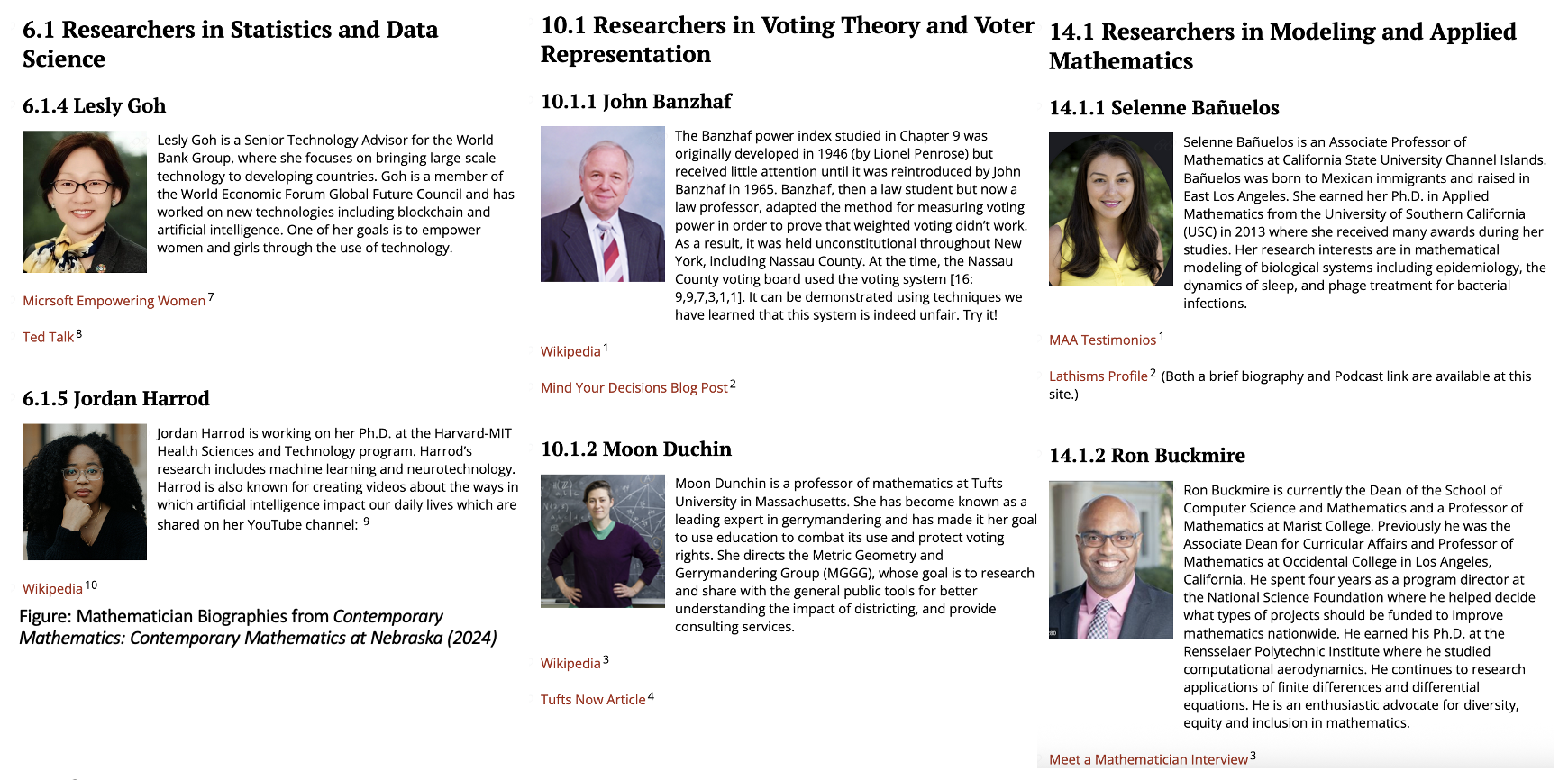Summer 2025 McNair Research
In the summer of 2025, as a part of my McNair scholars program, I had to complete a 10 week summer research intership, that culiminates in a paper, poster, and oral presentation. Through the McNair program, I found a faculty mentor: Dr. Theresa Jorgensen. She’s a professor at the University of Texas at Arlington who researches Mathematics Education in the Mathematics department.
Dr. Jorgensen is working with some collaborators at the University of Nebraska-Lincoln, where they implemented a ton of inclusive teaching strategies, including an Open Education Resource (FREE) textbooks, and (The topic of my research,) showing students current researchers in various topics in mathematics, and having them write biographies on them 3 times during the semester. For example, when a student finishes reading the section in the book on statistics, they get to read about a selection of current day researchers in Data Science.

By implementing these strategies, the students feeling of belonging in the mathematics community showed the most statisitcally significant increase. My job was to investigate the reason this had happened. The importance of this research is pretty simple: The students who take terminal undergraduate mathematics courses (courses that have no sequel), aren’t going on to take Calculus or become engineers or anything like that. These are students who are going on to work in unrelated fields, or become early education teachers. Obviously, these people are dedicated members of their own respective communities. Having them be able to relate somewhat to mathematics and feel like they belong in our space may have some effect on the future of mathematicians, and the next generations ability to connect to math education.
Dr. Jorgensen advised using a thematic analysis technique, using some handy codes/definitions/prior research from Gutierrez’ Context Matters: How Should We Conceptualize Equity in Mathematics Education?
After some initial reading through all of the student submissions, I settled in on 8 different ways of categorizing, or coding, the data, following Gutierrez’ framework: Student/Mathematician Identity, Student/Mathematician Power, Student/Mathematician Access, Student/Mathematician Achievement. At the start of the semester, students had focused heavily on the achievements of the mathematicians in their writing. During my research, I found as the semester progressed the students had written less about only the achievements of the mathematicians, and connected with them in new and more personal ways. Basically, it looks like the the students started to see the mathematcians more as people, than these super far away people that are impossible to relate to. Providing students with the knowledge and with specific examples that people who are like them are able to become successful mathematicans, and showing the students that mathematicians exist in all industry and academic fields seems to have really helped bring the mathematician job down a little closer to Earth.
And of course, there’s plenty of room for further research. I want to look at more than just one section of this course, and I want to see these strategies implemented at different universities and colleges so we can further study.
You can read a bit more about this in an unpublished article submitted at the completion of my McNair summer research internship here: